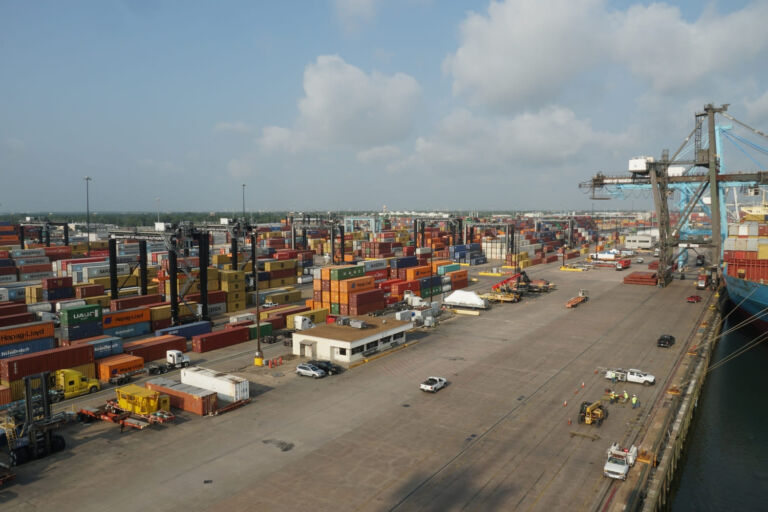What Is On-Demand Warehousing? Flexible Storage Solutions for Modern Supply Chains

On-demand warehousing is a flexible logistics solution that allows businesses to rent warehouse space and services on a short-term or pay-as-you-go basis. Instead of locking into long-term contracts, companies can scale storage as needed—ideal for seasonal inventory, unexpected overflow, or launching into new markets.
OLIMP connects businesses to a nationwide network of vetted, available warehouses, offering a streamlined way to book space, compare costs, and optimize logistics—all from one online platform.
How On-Demand Warehousing Works
On-demand warehousing connects businesses with a network of flexible, third-party logistics (3PL) providers and fulfillment centers. These platforms act as digital marketplaces, allowing businesses to easily find available storage spaces based on location, size, and duration. With transparent pricing and straightforward comparisons, businesses can secure the right warehouse space quickly, without the need for long-term commitments or complex negotiations.
Once a warehouse is selected, businesses can book the space for as long as needed, from a few weeks to several months. Many platforms also offer additional services such as inventory management, order fulfillment, and distribution, which can be seamlessly integrated into existing supply chains.
Advanced features like real-time tracking and integration with eCommerce platforms, order management systems (OMS), and shipping carriers provide full visibility and streamline operations. This technology ensures efficient inventory management and faster decision-making, helping businesses stay agile in a fast-paced market.
On-demand warehousing offers the flexibility to scale operations and optimize fulfillment while avoiding the high costs of traditional warehousing contracts.
Key Benefits of On-Demand Warehousing
On-demand warehousing empowers businesses to operate with speed, agility, and efficiency. Whether you’re navigating seasonal demand, expanding to new markets, or avoiding the burden of long-term leases, this model brings measurable advantages to your supply chain operations.
Faster Shipping & Fulfillment
Position your inventory closer to your customers and reduce delivery times with distributed warehousing. With OLIMP’s nationwide network, you can quickly secure space near major consumer hubs—ideal for meeting peak-season surges or tight shipping SLAs.
Reduced Overhead & Fixed Costs
Traditional warehousing locks you into expensive, long-term contracts. On-demand warehousing offers a flexible, usage-based pricing model—pay only for the space and services you need. This reduces capital investment while improving cost control, especially for seasonal or project-based operations.
Access to Expert Logistics Support
With OLIMP, you’re not just booking space—you’re gaining a professional support team. Our vetted warehouse partners and logistics experts help manage inventory, shipping, rework, cross-docking, and specialized needs like hazmat or temperature-controlled storage. Focus on growth while OLIMP handles the heavy lifting.
Flexible Scaling, On Your Terms
Need 10,000 sq. ft. this month and 30,000 next? No problem. OLIMP’s flexible warehousing model allows you to scale up or down in real time, without getting locked into rigid contracts. Perfect for startups, fast-growing brands, or unpredictable supply chains.
Integrated Technology & Real-Time Visibility
Through our platform, you can manage bookings, track shipments, and compare pricing in minutes. Many of our partner warehouses also offer advanced WMS (Warehouse Management Systems), robotics, or automation tools to enhance operational performance and inventory control.
Supply Chain Resilience & Risk Reduction
When unexpected disruptions hit—weather events, labor shortages, port delays—having a flexible warehousing option gives you critical backup. OLIMP helps you stay agile, enabling rapid pivoting across our network to keep your freight moving and your customers satisfied.
More Time for Core Operations
Managing storage, labor, and fulfillment in-house eats up time and resources. On-demand warehousing lets your internal team focus on what matters most: growth, product development, customer service, and strategic decision-making.
How It Works with OLIMP
- Submit Your Requirements
Share what you need—location, service type, volume, and timeframe. - Receive Tailored Solutions
Our team matches your needs with top-performing warehouse partners in your desired area. - Compare & Book
Instantly review options, compare pricing, and secure space—often within minutes. - Store & Scale Seamlessly
Move freight, manage inventory, and expand or reduce your warehousing footprint with ease.
Whether it’s cold chain logistics, rework services, or high-volume storage, OLIMP simplifies the process of finding and managing on-demand warehousing across North America.
Who Should Use On-Demand Warehousing?
- Retailers & E-commerce Brands
Handle spikes during peak shopping seasons or flash sales.- Freight Brokers & 3PLs
Solve emergency capacity shortages and last-mile challenges.- Manufacturers
Store raw materials or finished goods near key production or distribution hubs.- Startups & Growing Businesses
Launch new products without major infrastructure investment.
Frequently Asked Questions (FAQ) – OLIMP Warehousing
Q: What’s the difference between traditional and on-demand warehousing?
Traditional warehousing involves long-term leases and fixed contracts. On-demand warehousing offers temporary, flexible access to space and services as needed.
Q: Can I use on-demand warehousing for perishable goods?
Yes. OLIMP offers cold and frozen storage options across our network.
Q: How quickly can I book a warehouse?
In many cases, you can secure a solution within 30 minutes of submitting a quote request.
You may be interested in

Warehouse Space in Houston: How to Choose the Right Facility for Fast, Reliable Logistics
Houston has emerged as a major logistics hub in the USA, thanks to its huge port, central location, and robust industrial base. For companies seeking warehouse space in Houston, choosing the right facility is crucial to ensure fast, reliable logistics and distribution. This guide defines what makes Houston ideal for warehousing and how to select […]

Why More Retailers Are Switching to Flexible Warehousing Instead of Fixed Leases
Retail supply chains are under unprecedented pressure. The COVID‑19 era left U.S. retailers with roughly $740 billion of unsold goods, while national warehouse vacancy climbed to 7.1 % in Q2 2025, the highest rate since 2014. At the same time, rising rent and a scarcity of high‑quality space have made long‑term leases risky. In this […]

Shared Warehouse Space: What It Is, Who It’s For, and How to Pick One
Shared or co-warehousing spaces let multiple brands fulfill orders under one roof. Instead of leasing an entire warehouse, each client rents only the space and services it needs. Think of it as “coworking for logistics”: each company keeps its own inventory, but shares the facility’s racks, equipment, staff and management systems with others. This split-model […]
Ready to streamline your warehousing needs?
Request a quote today and discover how OLIMP's tailored solutions can optimize your operations